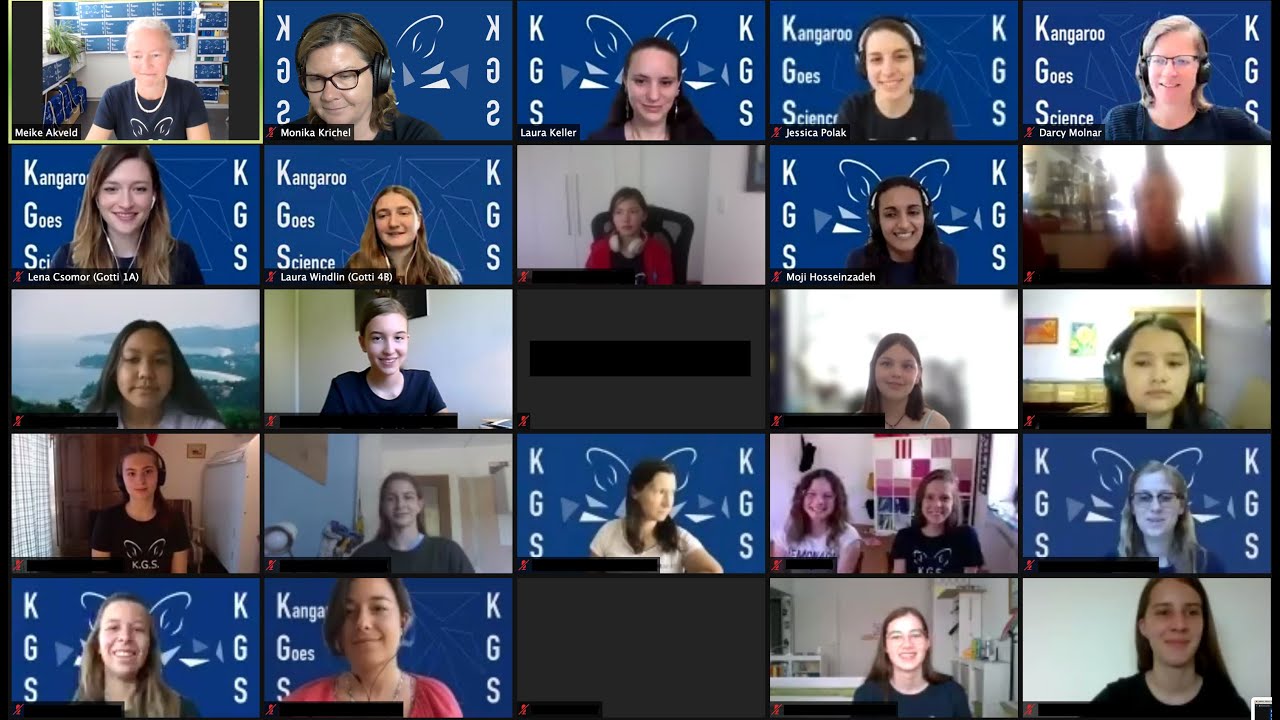Kangaroo goes virtual
After having to cancel the event last year, this year the Department together with the local pod of 500womenscientist invited the best 100 girls from the 2021 Kangaroo competition in year seven to attend the annual Kangaroo goes Science Day at ETH Zürich. The event was held in a virtual format.

The girls were offered a varied morning and afternoon programme with lectures, mathematics workshops and virtual laboratory visits. The necessary material was sent to them in a package by post a few days before the event.
Meike Akveld, President of Kangaroo Switzerland and of the Kangaroo without Frontiers Association opened the event with some facts about the Kangaroo mathematics competition: annually around six million children participate globally in the Kangaroo competition. More than 45,000 come from Switzerland, and about 9,000 participated in the category seven or eight, from which the top 100 girls were invited to attend the Kangaroo goes Science event.
"Science is teamwork" was one of the statements made by Vanessa Wood, ETH Vice President for Knowledge Transfer and Corporate Relations. She gave the participants a brief insight into her career and told them how a robotics camp sparked her interest in science, why she decided to study electrical engineering at MIT and what topics she is investigating today as a researcher.
In her presentation "More luck in games thanks to statistics", Corinne Emmenegger, doctoral student working on the development of statistical methods, challenged the participants to gamble. Using the famous "Monty Hall goat problem", the audience was invited to participate in choosing doors by means of a Zoom poll. The aim of the game was to choose the door with the main prize, a car, and not a door which was hiding a goat. With the help of a computer simulation, a method widely used in statistics, Corinne played through different strategies and showed which strategy had a higher chance of winning.
Senior Scientist Laura Keller showed in her workshop that origami can not only be used to fold kangaroos, but also to solve complex mathematical problems. Using a document camera and A4 paper, she showed the audience how to trisect an angle step by step without measuring, using only folding techniques.
In the following three short presentations ETH students Lena Csomor (Computer Science), Laura Windlin (Materials Science) and Mojgan Hosseinzadeh (Mathematics) gave a brief insight into their personal journeys and motivation to study at ETH, highlighting their experiences and their dedication to their fields of studies. All three gave the participating girls the advice to listen to their gut feeling when choosing a field of study and not to be influenced too much by the expectations of one's environment.
The morning ended with the announcement of the top five best girls of the 2021 Kangaroo competition and a joint lunch in 20 different break out rooms with their assigned "Gotte" for the day.
In the afternoon the girls were divided into smaller groups to participate in a mathematics workshop in graph theory or number theory as well as visit a laboratory on the following topics: plants and sensors (D-USYS), smart water turbidity sensing (D-BAUG), materials engineering (D-MAVT), food science and 3D printing (D-HEST).
During the girls' laboratory visits, the parents were invited to take part in the afternoon programme that included a presentation by Reto Kreuzer, Study Coordinator at the D-ITET and a question and answer session with female students and staff.
Organizing team
- Meike Akveld (D-MATH), President Kangaroo Switzerland and Kangaroo without Frontiers Association, founder of Kangaroo goes Science
- Darcy Molnar (D-BAUG), Coordinator 500 Women Scientists Zurich Pod, founder of Kangaroo goes Science
- Laura Keller, (D-MATH), Senior Scientist
- Jessica Polak (D-MAVT), doctoral student
- Alessandra Naldi, Sabine Abegg and Monika Krichel (D-MATH)